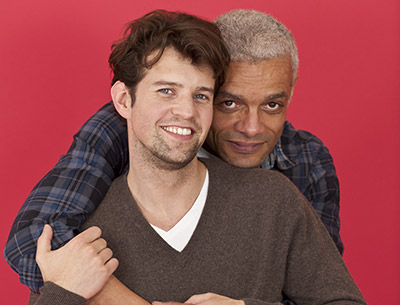GAY WEALTH MYTH BEING CHALLENGED
 The widely held notion that gays and lesbians are wealthier than other people is being challenged in the US.
The widely held notion that gays and lesbians are wealthier than other people is being challenged in the US.
Gays and lesbians are considered to have more disposable income, in part due to usually not having expenses related to children.
They are often depicted in the media as well-to-do and cosmopolitan urban professionals who spend much of their time shopping, socialising and eating in expensive restaurants and holidaying in exotic locations.
According to a recent report by the UCLA’s Williams Institute, however, American LGBT (lesbian, gay, bisexual and transgender) adults are actually more likely to need food support than heterosexual people.
The researchers found that more than one in four LGBT adults (29%), approximately 2.4 million people, experienced a time in the last year when they did not have enough money to feed themselves or their family. That’s 1.7 times more than heterosexual adults.
The study further found that more than one in five LGB adults aged 18-44 (21%), approximately 1.1 million people, needed to make use of food stamps (supplied by the federal government to assist low income people to buy food), in the past year to put food on the table.
Same-sex couples raising children under the age of 18 are also 2.1 times more likely than straight couples to receive food stamps.
“These data provide the first opportunity to understand the extent to which LGBT people in the US experience some aspects of food insecurity and use food stamps,” said the study’s author Gary J. Gates.
This comes in the wake of increasing recognition of LGBT rights in America. In an article on the issue, The Atlantic’s Nathan Mcdermott commented that,”Progress isn’t making gays and lesbians poor though, but it is allowing more poor people to acknowledge their sexuality.”
According to Mcdermott, the reasons why more LGBT people may be affected by poverty could be related to the fact that many gay men work in lower paying jobs such as teachers, nurses and secretaries. Many LGBT youth are also likely to become homeless due to being kicked out of their homes because of their sexuality, and LGBT people continue to face, often legal, job discrimination in the US.
In South Africa, gay men in particular have also been presented as high-earning individuals in a number of marketing studies. These studies may not paint an accurate picture as they often fail to include rural people and people of colour or tend to target specific demographics, such as online users who are usually more affluent than others. Also, many poorer South Africans may not be reached by gay media, through which these surveys are often conducted.
“Popular culture has helped launch gay people in to the mainstream, but for all the benefits that shows such as Will & Grace, Modern Family, and Glee have had for the LGBT community on the public’s consciousness, few cultural outlets accurately represent the realities gays and lesbians face in America today,” wrote Mcdermott. “Realities like poverty, discrimination, homelessness and food insecurity.”
He added that, “this misinformation is more damaging than simple ignorance. It holds back the entire gay equality movement.”
Leave a Reply